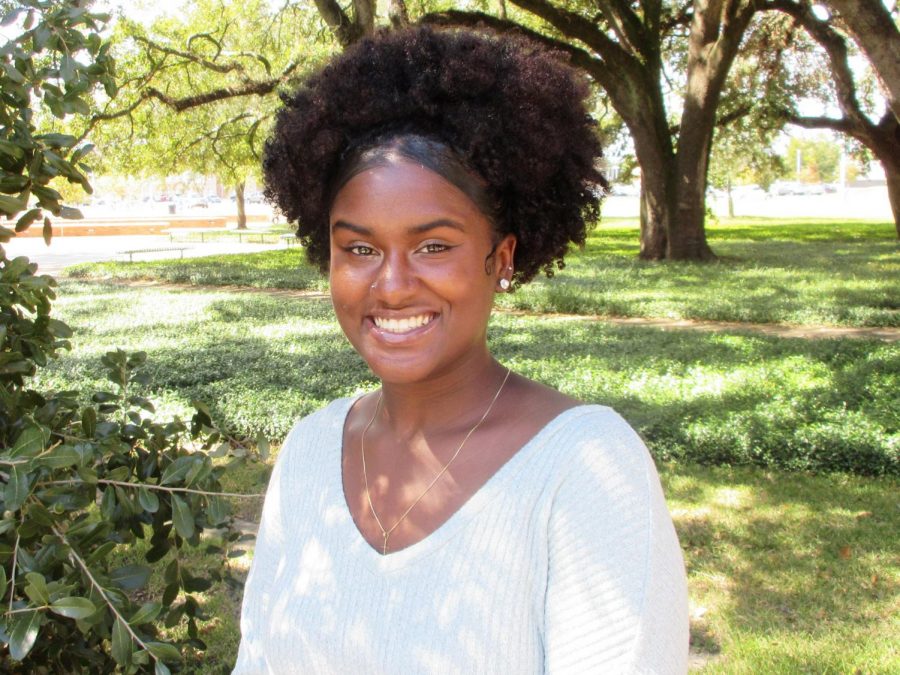The spectrum of skin tones: white, black and everything in between
October 3, 2018
Whenever I go into a room filled with people of different races, my unreasonably paranoid brain gets shipped to an entirely different world. This world enrages the insecure Diamond, obsessing over what everyone thinks of her and if her blackness is so perceptible. Insecure Diamond and cool-headed Diamond wage war in my head, the sure cause of my constant headaches.
Does my hair look nappy? It is curly, not nappy. Do they think I am dumb? You are acing all your classes. Tell them to ask your professors about you. Do they think I like chicken, watermelon and Kool-Aid? Chicken is alright. Watermelon is too messy. Kool-Aid is too sweet. Have they already unconsciously categorized me as gum smacking, boisterous talking black girl? You chew gum with your mouth closed like a civilized human being, and you are very soft spoken. Thank you very much.
After insecure Diamond and cool-headed Diamond have had their go at it, phase two of the craziness in my head begins. In this phase, every stereotype I have ever heard about whatever race I am near starts to crackle in my head like popcorn. No matter how hard I try to block them out, they still come unbidden, persistent and impossible to ignore.
When I finally tumble back into the humdrum of reality and the illusions scatter to the back of my brain, I am embarrassed to realize that my palms are drenched in sweat. A nervous twitch is assaulting my left eye, and complete awkwardness is tauntingly breathing air on the back of my neck.
And why? Because I am surrounded by people who do not look like me, and the way society is set up, I know I have been stereotyped and tossed in a metaphorical bucket titled “Black People.”
This situation brings up a couple of imperatives and always ignored questions. Why do people care so much about race? Why does it matter where I fall on the spectrum of skin tones? Why does a person’s race have the ability to influence emotions so intensely?
I could give you all the cliche answers I am sure you have heard before, or I could just start off by telling you that generalizing a race is a way people convince themselves that they are in control. It is a certain power we feel. We see a person, and depending on their race, we know if we should lock our doors or clutch our wallets a little tighter. Knowledge and expectation are tools we all want in our arsenal, and putting captions under specific groups helps us gain these things, or so we think.
We form these judgments based off the things we see every day on TV, on social media and even on trusted news stations. Various TV shows have convinced us that sketchy criminals are most likely to be black or Hispanic and living in a dangerous side of town. Social media like Instagram and Facebook has taught us to expect to laugh when we see a white person trying to dance.
Now, everywhere we go, race becomes the basis for how we perceive a person, and most of the time, our perceptions are lacking.
I say we ban social media and TV and learn how to communicate face to face.
Anybody with me? No? OK.
We should not go so far as banning all those things, but we should learn to look past race to fairly make our own assessments of a person based on their character. They might fall at the beginning of the spectrum of skin tones, at the end or somewhere in the middle. Either way, learn to throw stereotypes away and branch out of the lines of normality because race should not matter.








